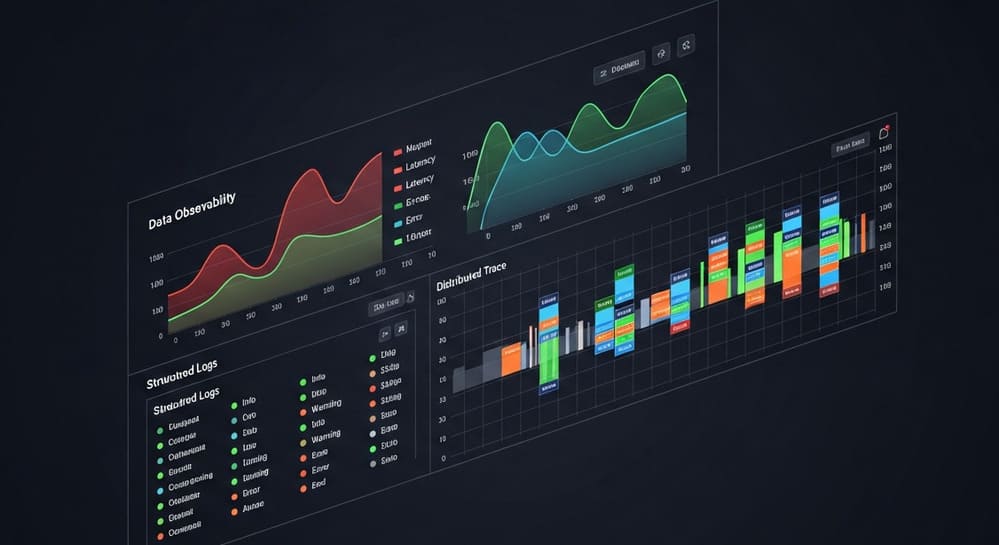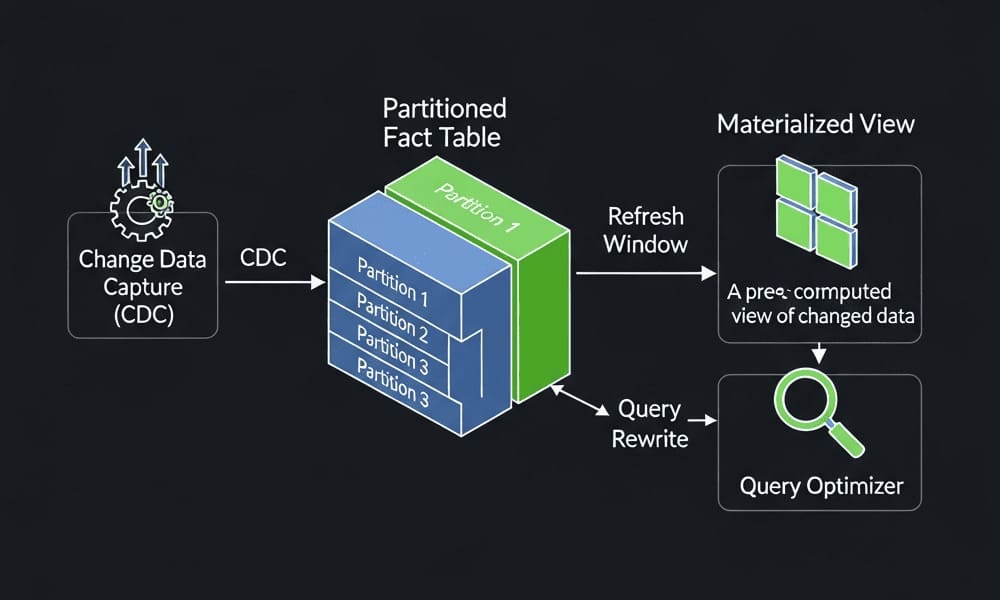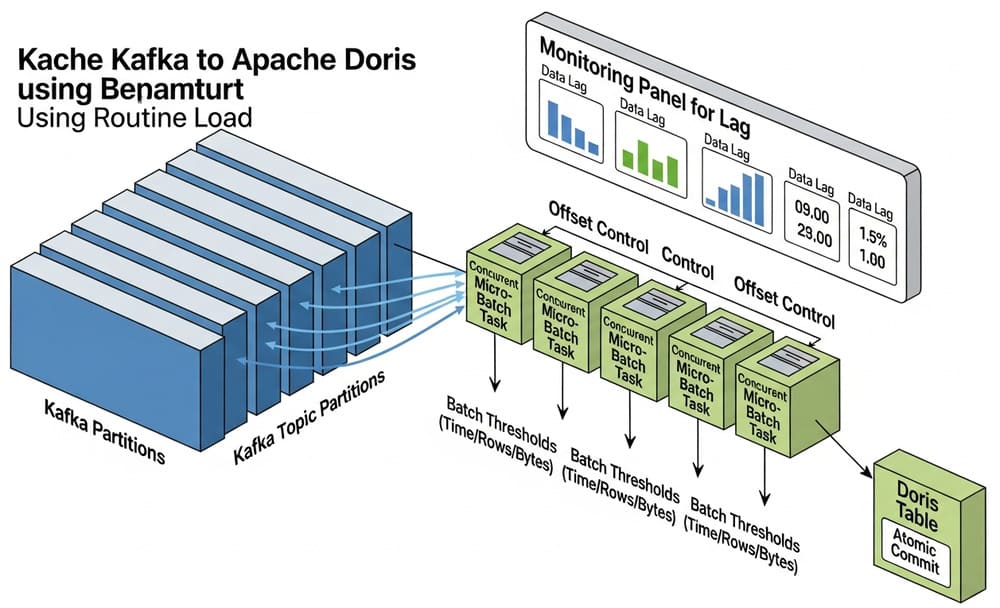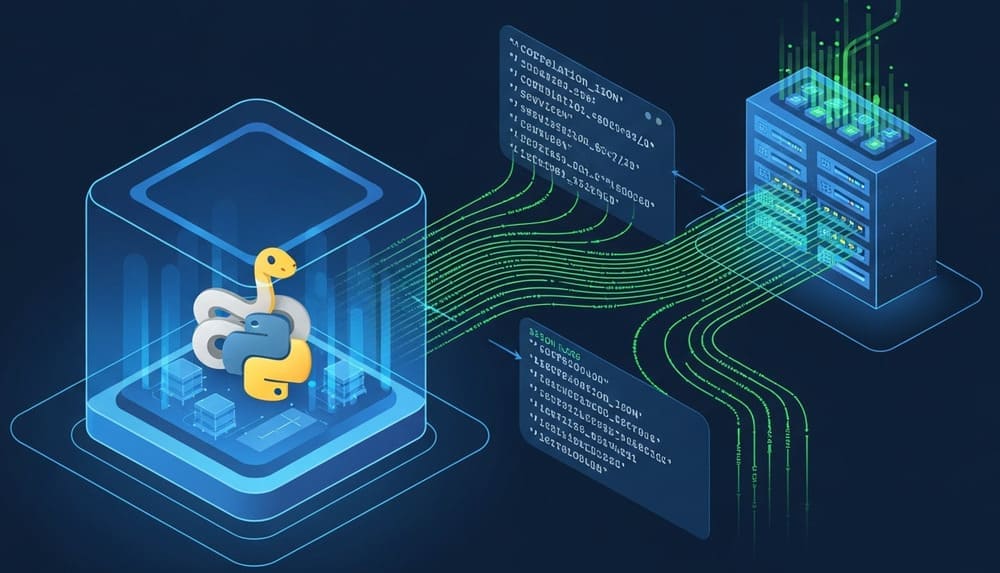GitLab CI/CD: CI/CD Integrated with GitLab
In the evolving landscape of DevOps and software development, GitLab CI/CD has emerged as a powerful, all-in-one solution that seamlessly integrates continuous integration and continuous delivery capabilities directly into the GitLab platform. This tight integration offers development teams a streamlined workflow from code to deployment without requiring multiple disparate tools or complex integrations.
The Unified Platform Advantage
Unlike traditional CI/CD setups that often require cobbling together multiple tools and services, GitLab CI/CD provides a single application for the entire DevOps lifecycle. This unified approach eliminates context switching between different systems, reduces configuration overhead, and creates a consistent experience for development teams.
The core philosophy behind GitLab CI/CD is simple yet powerful: by integrating source code management, CI/CD pipelines, container registries, security scanning, and deployment tools in one platform, teams can achieve greater visibility, traceability, and efficiency in their development processes.
How GitLab CI/CD Works
At the heart of GitLab CI/CD is the .gitlab-ci.yml file, which defines the structure and execution of your CI/CD pipelines. This YAML configuration file, committed to the root of your repository, acts as the blueprint for how your application should be built, tested, and deployed.
Here’s a simplified example of a .gitlab-ci.yml file:
stages:
- build
- test
- deploy
build-job:
stage: build
script:
- echo "Building the application..."
- make build
artifacts:
paths:
- build/
test-job:
stage: test
script:
- echo "Running tests..."
- make test
deploy-job:
stage: deploy
script:
- echo "Deploying application..."
- make deploy
environment: production
only:
- main
When changes are pushed to your GitLab repository, GitLab automatically detects the presence of this file and initiates a pipeline that follows the defined stages and jobs. Each job is executed by a GitLab Runner, which can be shared across projects or dedicated to specific requirements.
Key Features That Set GitLab CI/CD Apart
1. Built-in Runners and Autoscaling
GitLab provides shared runners out of the box, allowing teams to start using CI/CD immediately without additional infrastructure. For teams with more specific needs, GitLab supports self-hosted runners that can be installed on your own infrastructure.
One powerful capability is GitLab’s autoscaling runner configuration, which can automatically spin up and down cloud instances based on pipeline demand:
runners:
config: |
[[runners]][runners.machine]
IdleCount = 1 IdleTime = 1800 MaxBuilds = 10 MachineDriver = “google” MachineName = “gitlab-docker-machine-%s” MachineOptions = [ “google-project=my-project”, “google-machine-type=n1-standard-1”, “google-zone=us-central1-a” ]
This approach ensures you have enough capacity for peak times while minimizing costs during periods of low activity.
2. Multi-Project Pipelines
GitLab allows developers to trigger pipelines across multiple projects, enabling complex workflows that span several repositories:
trigger-downstream:
stage: deploy
trigger:
project: my-group/my-deployment-project
branch: main
strategy: depend
This feature is particularly valuable for microservices architectures or data engineering workloads that may depend on changes across multiple repositories.
3. Dynamic Pipelines with Rules and Templates
GitLab CI/CD supports highly dynamic pipeline configurations that can adapt based on specific conditions:
deploy-production:
stage: deploy
script:
- deploy_to_production
rules:
- if: $CI_COMMIT_BRANCH == "main" && $CI_COMMIT_TAG =~ /^v\d+\.\d+\.\d+$/
when: manual
- if: $CI_COMMIT_BRANCH == "production"
when: always
For larger organizations, GitLab offers pipeline templates that can be included and reused across projects, ensuring consistency while reducing duplication:
include:
- project: 'my-group/ci-templates'
file: '/templates/python.gitlab-ci.yml'
4. Integrated Security Testing
GitLab CI/CD includes built-in security scanning capabilities that can be easily added to pipelines:
secret-detection:
stage: test
script:
- echo "Checking for secrets..."
variables:
SECURE_LOG_LEVEL: "error"
rules:
- if: $CI_COMMIT_BRANCH
artifacts:
reports:
secret_detection: gl-secret-detection-report.json
These security scans cover areas like static application security testing (SAST), dependency scanning, container scanning, and secret detection, providing early feedback on potential vulnerabilities.
5. Built-in Container Registry and Kubernetes Integration
GitLab CI/CD seamlessly integrates with GitLab’s Container Registry, making it easy to build, store, and deploy containerized applications:
build-image:
stage: build
image: docker:20.10.16
services:
- docker:20.10.16-dind
script:
- docker build -t $CI_REGISTRY_IMAGE:$CI_COMMIT_REF_SLUG .
- docker push $CI_REGISTRY_IMAGE:$CI_COMMIT_REF_SLUG
For Kubernetes deployments, GitLab provides native integration that simplifies deploying to various Kubernetes environments:
deploy-to-k8s:
stage: deploy
image: bitnami/kubectl:latest
script:
- kubectl config use-context my-cluster
- kubectl apply -f kubernetes/deployment.yaml
GitLab CI/CD for Data Engineering Workflows
For data engineering teams, GitLab CI/CD offers particularly valuable capabilities:
ETL Pipeline Automation
Data engineers can use GitLab CI/CD to automate their ETL (Extract, Transform, Load) workflows:
stages:
- extract
- transform
- load
- validate
extract-data:
stage: extract
script:
- python scripts/extract_data.py
artifacts:
paths:
- data/raw/
transform-data:
stage: transform
script:
- python scripts/transform_data.py
artifacts:
paths:
- data/transformed/
load-data:
stage: load
script:
- python scripts/load_to_warehouse.py
only:
- main
Scheduled Data Processing
For recurring data tasks, GitLab CI/CD supports scheduled pipelines:
data-processing:
stage: process
script:
- python process_daily_data.py
only:
- schedules
These can be configured in the GitLab UI to run at specific intervals, such as daily at midnight.
Data Quality Validation
Data quality checks can be integrated directly into CI/CD pipelines:
validate-data-quality:
stage: validate
script:
- python -m great_expectations checkpoint run data_quality_checkpoint
artifacts:
paths:
- quality_reports/
reports:
junit: quality_reports/quality_results.xml
These checks ensure that data meets predefined quality standards before being used in production environments.
Machine Learning Model Training and Deployment
For teams working with machine learning, GitLab CI/CD can automate model training and deployment:
train-model:
stage: train
script:
- python train_model.py
artifacts:
paths:
- models/trained_model.pkl
expire_in: 1 week
evaluate-model:
stage: evaluate
script:
- python evaluate_model.py
artifacts:
reports:
metrics: metrics.json
deploy-model:
stage: deploy
script:
- python deploy_model_to_endpoint.py
environment:
name: production
url: https://ml-api.example.com
only:
- main
when: manual
Real-World Example: Data Pipeline with GitLab CI/CD
Let’s consider a practical example of how a data engineering team might use GitLab CI/CD to automate a data pipeline that processes customer transaction data, transforms it, and loads it into a data warehouse for analysis.
stages:
- validate
- process
- test
- deploy
- monitor
variables:
POSTGRES_HOST: "db.example.com"
POSTGRES_DB: "transactions"
DATA_WAREHOUSE: "dw.example.com"
validate-source-data:
stage: validate
script:
- python scripts/validate_source_data.py
allow_failure: true # Continue pipeline even if validation has warnings
extract-transform:
stage: process
script:
- python scripts/extract_transactions.py
- python scripts/transform_transactions.py
artifacts:
paths:
- data/processed/
- data/metadata.json
test-data-quality:
stage: test
script:
- python scripts/run_quality_checks.py
dependencies:
- extract-transform
artifacts:
reports:
junit: reports/quality_check_results.xml
load-to-warehouse:
stage: deploy
script:
- python scripts/load_to_warehouse.py --target=$DATA_WAREHOUSE
dependencies:
- extract-transform
only:
- main
environment:
name: production
url: https://analytics.example.com
update-dashboard:
stage: deploy
script:
- python scripts/refresh_dashboard.py
needs:
- job: load-to-warehouse
artifacts: false
only:
- main
monitor-data-freshness:
stage: monitor
script:
- python scripts/check_data_freshness.py
dependencies: []
allow_failure: true
only:
- main
This pipeline includes validation of source data, ETL processing, data quality testing, loading to a warehouse, dashboard updates, and monitoring of data freshness. Each stage builds upon the previous one, creating a comprehensive workflow that ensures data quality and reliability.
Best Practices for GitLab CI/CD
Based on industry experience, here are some best practices for using GitLab CI/CD effectively:
1. Optimize Pipeline Performance
- Use parallel jobs for independent tasks
- Implement caching for dependencies and build artifacts
- Consider using the
needskeyword instead ofdependenciesfor more flexible job relationships
build-backend:
stage: build
script: make build-backend
cache:
paths:
- node_modules/
build-frontend:
stage: build
script: make build-frontend
cache:
paths:
- node_modules/
test-integration:
stage: test
needs:
- build-backend
- build-frontend
script: make test-integration
2. Structure Pipelines for Clarity
- Group related jobs into stages
- Use descriptive job and stage names
- Consider using parent-child pipelines for complex workflows
workflow:
rules:
- if: $CI_COMMIT_TAG
variables:
PIPELINE_TYPE: "release"
- if: $CI_COMMIT_BRANCH == "main"
variables:
PIPELINE_TYPE: "main"
- if: $CI_MERGE_REQUEST_ID
variables:
PIPELINE_TYPE: "merge-request"
stages:
- build
- test
- deploy
build:
stage: build
trigger:
include: pipelines/build.gitlab-ci.yml
strategy: depend
3. Implement Proper Environment Management
- Define environments for different deployment targets
- Use environment-specific variables
- Implement approval processes for sensitive environments
deploy-staging:
stage: deploy
script: deploy-script.sh
environment:
name: staging
url: https://staging.example.com
only:
- main
deploy-production:
stage: deploy
script: deploy-script.sh
environment:
name: production
url: https://example.com
only:
- main
when: manual
4. Secure Your CI/CD Pipeline
- Use GitLab’s protected variables for sensitive information
- Implement container scanning for Docker images
- Regularly update base images and dependencies
- Limit permissions of CI/CD service accounts
The Integration Advantage: GitLab as a Complete DevOps Platform
One of GitLab’s greatest strengths is how CI/CD is just one part of a comprehensive DevOps platform. This integration provides several unique advantages:
End-to-End Traceability
With GitLab, you can trace a feature or change from initial issue creation through code reviews, CI/CD pipeline execution, to final deployment and monitoring:
- Start with an issue in the Issue Tracker
- Create a merge request with code changes
- Automatically run CI/CD pipelines
- Deploy to environments
- Monitor application performance
- Track which code changes impact which metrics
This traceability is invaluable for troubleshooting and compliance purposes.
Unified Permissions Model
GitLab’s unified permissions model means that access control is consistent across all aspects of the platform:
- Code repositories
- CI/CD pipelines
- Deployment environments
- Container registries
- Security scan results
This simplifies administration and improves security by reducing the chance of permission gaps between systems.
Integrated Metrics and Monitoring
GitLab includes monitoring capabilities that can be tied directly to your CI/CD pipelines:
production:
stage: deploy
script: deploy-to-production.sh
environment:
name: production
url: https://example.com
metrics_path: '/-/metrics'
dashboard_url: https://grafana.example.com/d/xvAk4q0Wk/my-dashboard
This integration helps teams quickly identify if a deployment impacts performance or introduces errors.
The Future of GitLab CI/CD
Looking ahead, several trends are shaping the evolution of GitLab CI/CD:
- Enhanced AI integration, with features like automated code quality suggestions and intelligent pipeline optimization
- Expanded support for specialized workflows, including data science, data engineering, and machine learning operations (MLOps)
- Improved performance and scalability for handling larger repositories and more complex pipelines
- Deeper integration with cloud-native technologies like serverless computing and service meshes
As GitLab continues to evolve its platform, the tight integration between source code management and CI/CD remains a core strength that distinguishes it from alternative approaches requiring multiple tools.
Conclusion
GitLab CI/CD represents a powerful paradigm in the DevOps landscape: a fully integrated solution that covers the entire software development lifecycle. For data engineering teams and software developers alike, this integration offers significant advantages in terms of efficiency, visibility, and process standardization.
By eliminating the need to maintain and integrate multiple disparate tools, GitLab CI/CD reduces overhead and allows teams to focus on delivering value through their code and data pipelines. The platform’s flexibility accommodates a wide range of workflows, from simple application deployments to complex data processing systems.
Whether you’re building traditional applications, managing data infrastructure, or implementing machine learning workflows, GitLab CI/CD provides a robust foundation for automating and streamlining your development and deployment processes. As development practices continue to evolve toward more automated, integrated approaches, GitLab’s unified platform positions teams to embrace these changes efficiently and effectively.
Keywords: GitLab CI/CD, Continuous Integration, Continuous Deployment, DevOps, pipeline automation, data engineering, ETL automation, .gitlab-ci.yml, pipeline configuration, runners, kubernetes integration, container registry, data pipelines, automated testing, deployment automation, MLOps
#GitLabCICD #ContinuousIntegration #ContinuousDeployment #DevOps #DataEngineering #PipelineAutomation #CICD #GitLab #DataOps #ETLAutomation #MLOps #KubernetesIntegration #AutomatedTesting #DeploymentAutomation #DataPipelines
Official GitLab CI/CD: https://docs.gitlab.com/ci/





